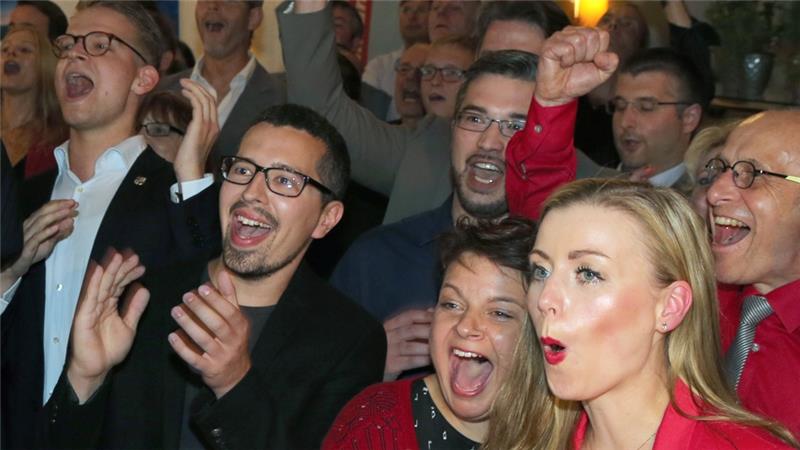-
Tips for becoming a good boxer - November 6, 2020
-
7 expert tips for making your hens night a memorable one - November 6, 2020
-
5 reasons to host your Christmas party on a cruise boat - November 6, 2020
-
What to do when you’re charged with a crime - November 6, 2020
-
Should you get one or multiple dogs? Here’s all you need to know - November 3, 2020
-
A Guide: How to Build Your Very Own Magic Mirror - February 14, 2019
-
Our Top Inspirational Baseball Stars - November 24, 2018
-
Five Tech Tools That Will Help You Turn Your Blog into a Business - November 24, 2018
-
How to Indulge on Vacation without Expanding Your Waist - November 9, 2018
-
5 Strategies for Businesses to Appeal to Today’s Increasingly Mobile-Crazed Customers - November 9, 2018
Anti-immigration populists beat Merkel’s party in election in her home state
German Chancellor Angela Merkel vowed Monday to “win back trust” of voters angered by her open-door refugee policy, while admitting her share of responsibility for her conservatives’ humiliating election loss to an anti-migrant party.
Advertisement
“Everyone now needs to think about how we can win back trust – most of all”, Merkel said, speaking on the sidelines of a G20 summit in China a day after the election in her home state of Mecklenburg-Western Pomerania.
“In the eyes of the people, this can not be separated, and therefore I am of course also responsible”, Merkel said.
Founded in 2013, the AfD now has won seats in nine of the 16 state assemblies across the country.
The AfD in the state of Baden-Württemberg recently suffered an internal split over a member of the legislature, Wolfgang Gedeon, who withdrew from the party faction within months of his election over charges that he had made anti-Semitic comments and belittled the Holocaust in writings. They have ruled the state in a coalition with Merkel’s CDU for the past decade.
The Deputy Leader of the party Beatrix von Storch said, “This is what we probably call the beginning of the end of Angel Merkel’s Chancellorship”.
While Alavan’s Newton said in his note, “let’s see what happens in Berlin a fortnight from now (in the state election) before writing Merkel off”, another analyst said the Berlin election could force the CDU into an uncomfortable position with the SPD – a party that, despite partnering the CDU/CSU in power, has criticized her migrant policy.
“I am the party leader, I am the chancellor – you can’t separate those in people’s eyes, so I am of course responsible too” for the result, Merkel said.
The CSU has been railing against Merkel’s steadfast opposition to putting limits on the number of refugees even though Germany took in more than the rest of Europe combined in 2015. Earlier this year, it was expected that the CDU would help form the region’s coalition government along with the centre-left Social Democratic Party.
Although Merkel already adjusted migrant policies over the past year, she can’t make a clean break from her overall approach because “that wouldn’t be credible”, political science professor Klaus Schroeder told N24 television. It was the first of five regional ballots before a national election a year away.
Tauber, who has often advocated Merkel’s humanitarian response to last years intake of some one million asylum seekers, was referring to communal elections due next Sunday in Lower Saxony, which has Hanover as its regional capital.
Advertisement
AfD positions itself as a national-conservative party with a liberal economic program, but at the present time it also projects a powerful anti-Islamic message and vehemently opposes any attempts to allow migrants into the country.





























